Karachi, Pakistan — From December 9th to December 13th, 2024, Data-Pop Alliance (DPA) facilitated the Gender Data Training for Inclusive and Responsive Planning and Budgeting in Pakistan in collaboration with UN Women Pakistan. This initiative aimed to equip government and institutional stakeholders with the skills needed to effectively use gender data in planning and budgeting processes, fostering equity and inclusiveness in policymaking. It represents a pivotal step toward advancing gender equity, institutional accountability, and evidence-based decision-making in Pakistan.
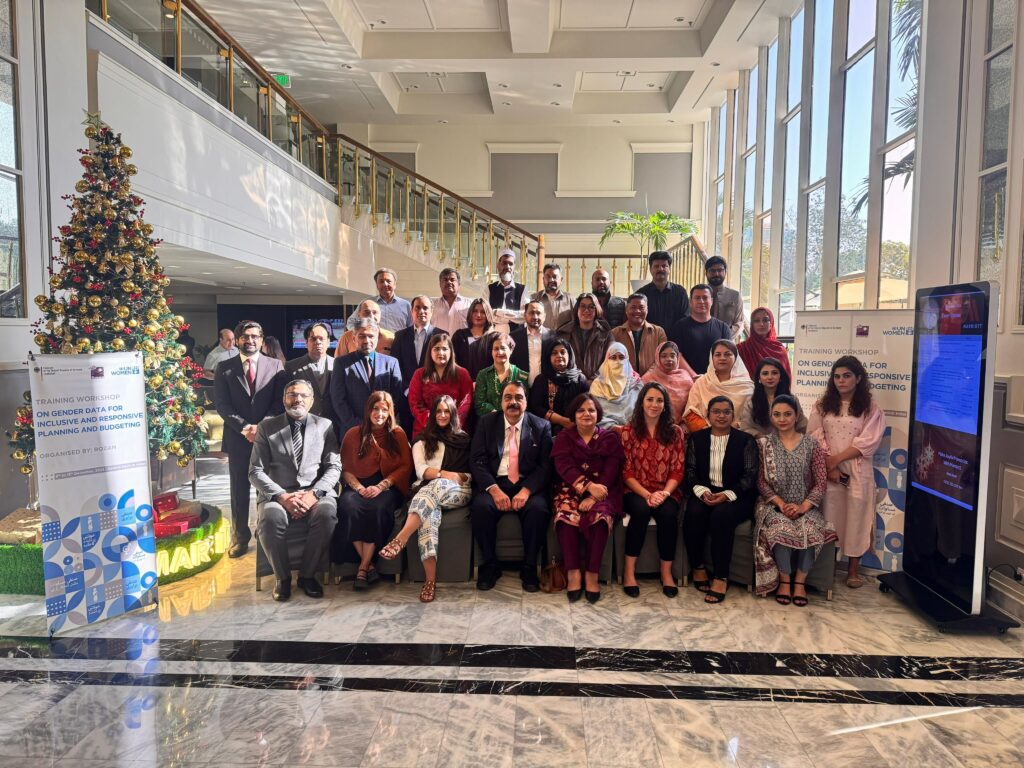
The Organizations Behind the Initiative
The training was spearheaded by UN Women Pakistan and supported by Rozan, a local organization promoting emotional health, tolerance, gender equality, and the reduction of violence against women and children, and the Embassy of the Federal Republic of Germany Islamabad, a key supporter of sustainable development initiatives in the region.
Leveraging its extensive experience in developing and delivering capacity-building workshops, DPA was tasked with designing and implementing the five-day training program. DPA’s expert team—Anna Spinardi (Director, Data Feminism Program), Natalie Grover (Managing Director), and Evelin Lasarga (Data Analyst and Project Manager)—delivered the training in person in Pakistan at the Marriot Karachi Hotel.
A Comprehensive Training Framework and Approach
DPA’s approach builds on its capacity-building and capacity-strengthening framework, which aims to develop core competencies for data literacy. This framework is centered around the ‘four building blocks of data literacy’:
- Context and Concepts: Understanding the foundational principles and real-world relevance of data.
- Design and Strategy: Developing strategic approaches to data collection and analysis.
- Methods and Tools: Learning practical techniques and tools for effective data use.
- Ethics and Engagement: Ensuring responsible and inclusive use of data.
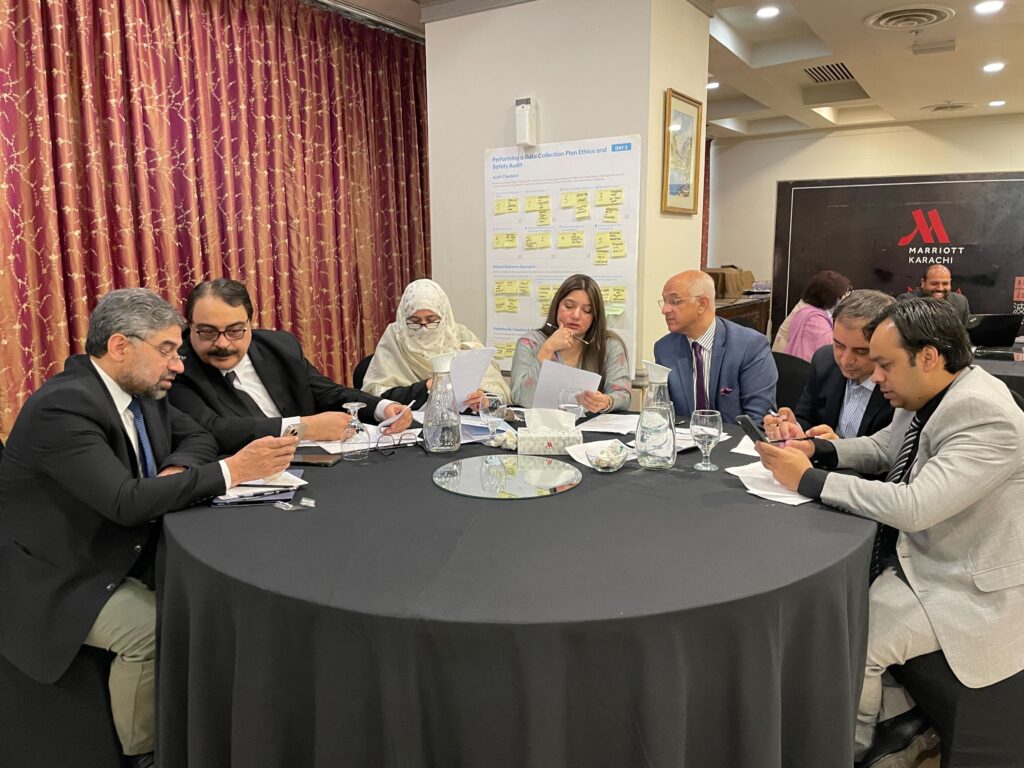
This adaptable framework enables DPA to tailor training to meet specific learning objectives. In this case, the Gender Data Training is part of a broader initiative to integrate gender-sensitive approaches with the goal of promoting inclusivity and equity.
The five-day training module was organized into the following key sections:
- Introduction to Gender Data: Foundational concepts and the importance of integrating gender data into policymaking.
- Gendered Data Collection and Analysis: Techniques to collect and analyze data with a gender perspective.
- Ethical Use of Gender Data: Best practices for data privacy and consent to ensure responsible use.
- Gender-Responsive Planning and Budgeting (GRPB): Tools to integrate gender sensitivity into financial planning.
- Applying Gender Data in Policy Formulation: Practical approaches for implementing evidence-based reforms.
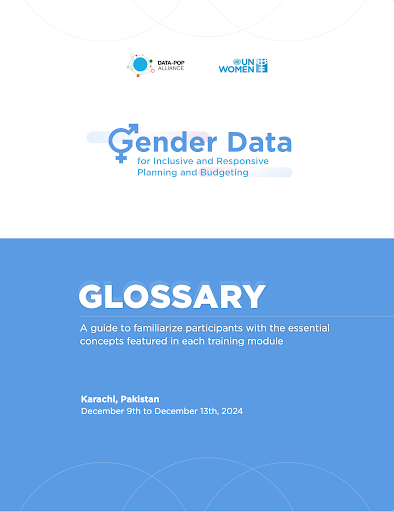
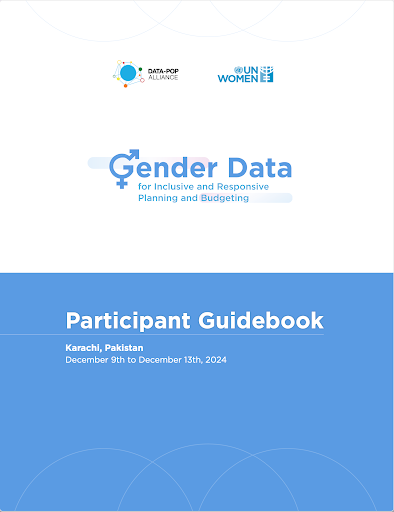
Participants were equipped with a Participant Guidebook and a comprehensive Glossary, designed as long-term reference materials to support their continued application of the training concepts.
On the fifth day, participants engaged in a hands-on laboratory exercise, utilizing the tools and framework introduced during the previous days, to develop strategies for advancing their gender data-based projects.
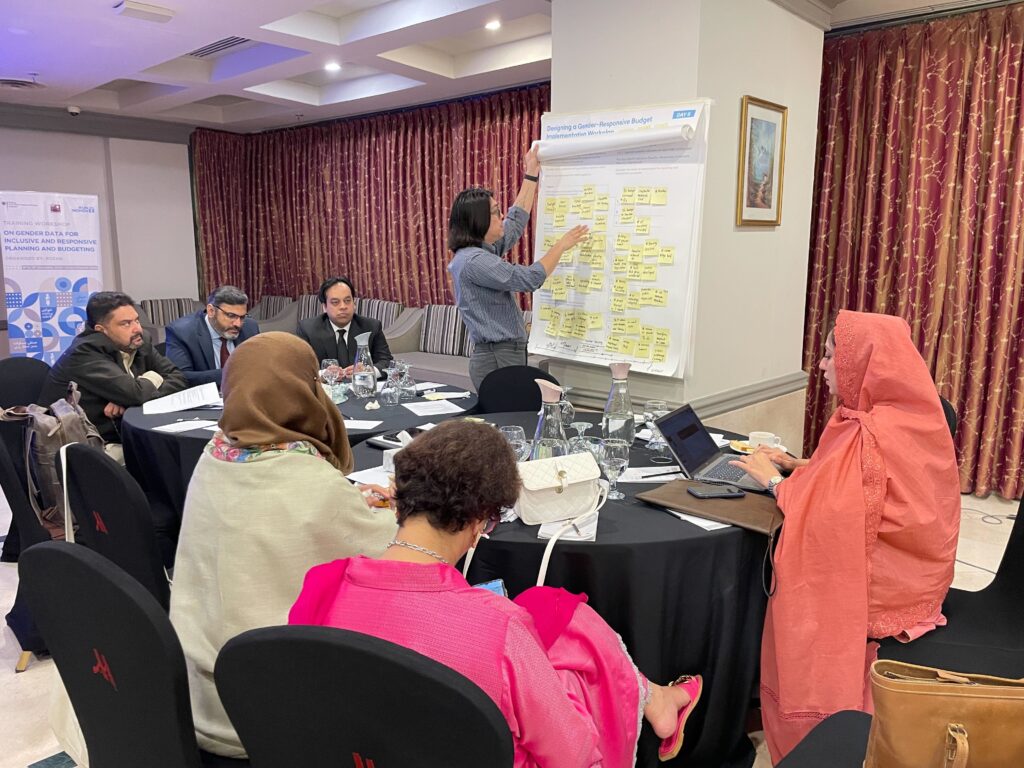
Building Capacity Through Previous Trainings
As part of DPA’s Mobilize pillar—focused on strengthening capacities, communities, and ideas for more data- and technology-literate societies—our team has a proven track record of delivering impactful trainings worldwide.
Earlier this year, DPA conducted a similar training for UN Women in Bangkok, Thailand, equipping participants with methodological knowledge and technical skills to leverage non-traditional data for monitoring gender-sensitive Sustainable Development Goals (SDGs). The three-day program, led by DPA’s Data Feminism team, included: Sentiment Analysis, Satellite Imagery, and Design Thinking.
The training culminated in hands-on exercises, where participants developed actionable, gender-sensitive Big Data projects. This initiative laid the groundwork for ongoing collaboration to advance gender equity through innovative data approaches.
Since 2016, DPA has facilitated over 40 workshops and trainings across 15 countries, partnering with organizations such as The United Nations System Staff College (UNSSC), the Economic Commission for Latin America and the Caribbean (ECLAC), GIZ, AECID, and various national statistical offices.
These experiences showcase DPA’s ability to design and implement capacity-building programs that deliver measurable impact while addressing complex development challenges.
To learn more about our literacy work, click the button below.
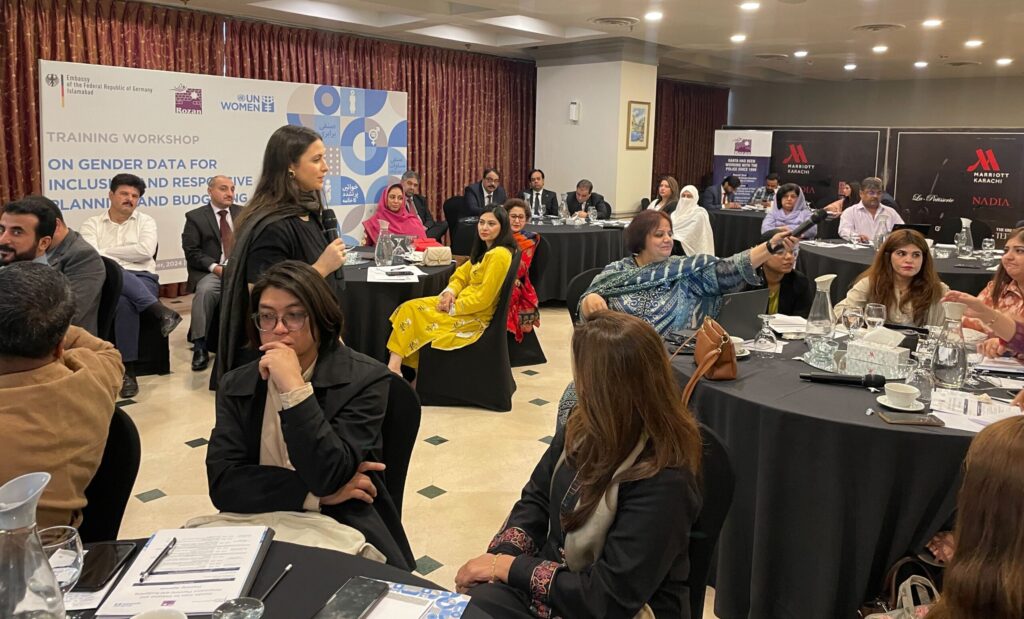
Interested in Collaborating with Us?
This training marks a significant step in promoting institutional accountability and gender equity. However, challenges such as limited technical expertise and resistance to change persist. To address these, DPA emphasizes capacity-strengthening workshops, accessible tools, and engagement with local leaders to integrate gender-sensitive approaches effectively.
If you’re interested in collaborating with us or learning more about our programs, please reach out to us at contact@datapopalliance.org.
Learn more about our Data Feminism Program.
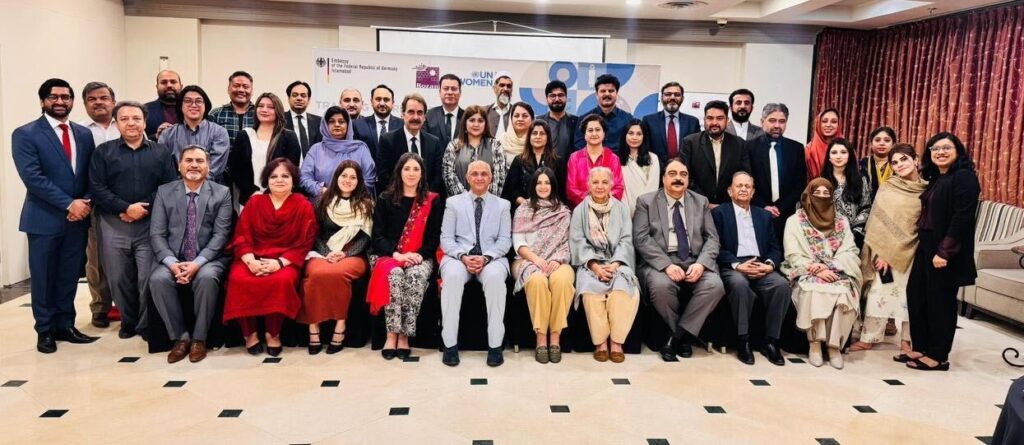
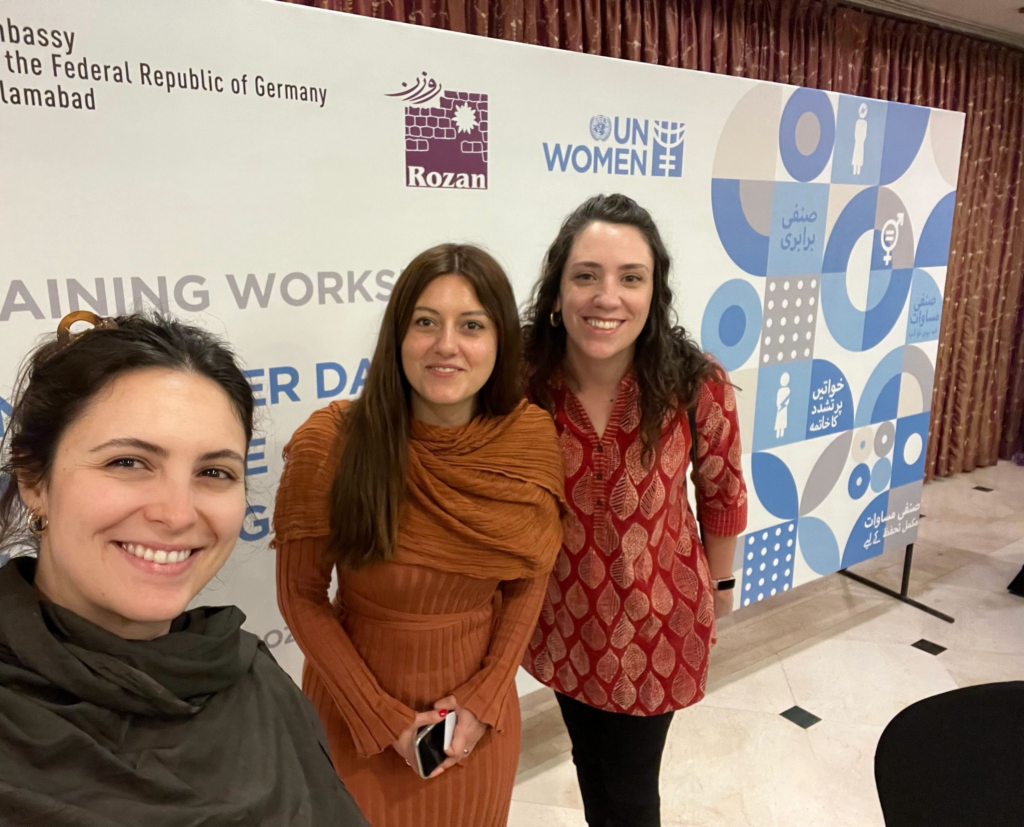


![M002 - Feature Blog Post [WEB]](https://datapopalliance.org/wp-content/uploads/2025/10/M002-Feature-Blog-Post-WEB.png)





